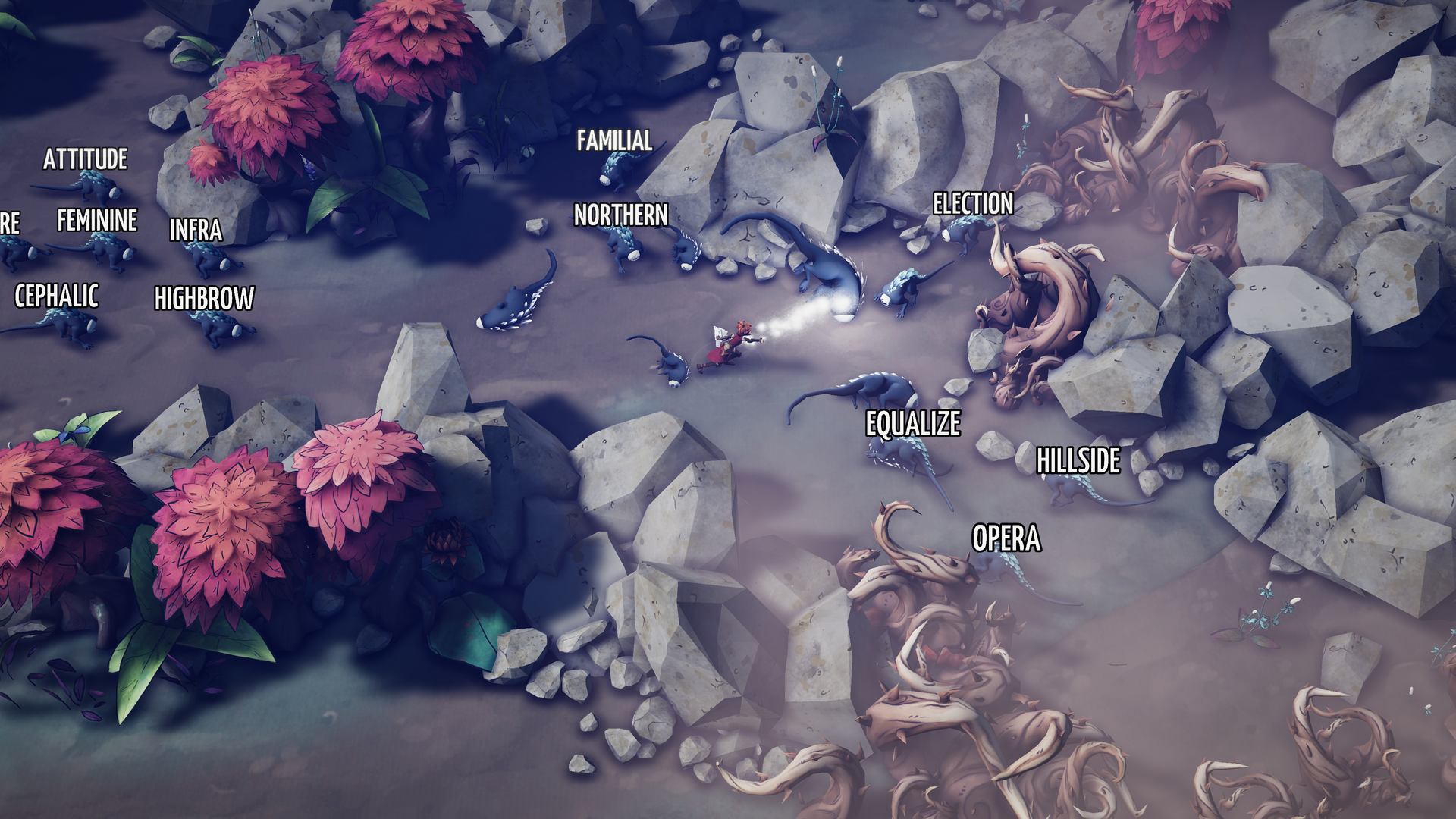Nanotale: Typing Chronicles Will Put Your Keyboard To The Test
A follow-up with strong foundations but a need for more.

Fishing Cactus have explored the typing mechanic before with Epistory, the first instalment in their Typing Chronicles series. It’s been a while since Epistory’s release, so when their revival of the idea was on show at Rezzed this year, it’s understandable that many a finger was poised over the keyboard.
It’s clear from first glance that Nanotale takes the series in a new direction. With a pastel, almost watercolour aesthetic and ethereal movements from its main protagonist, the cartoonified worlds of Epistory are a distant memory. This natural design sits right at home in the thematic direction of the game.
As an archivist, it’s your task to not only document the wonders of the natural world around you but to harness that power for spells and abilities. Walking up to a strange new plant, players are presented with the option to type out random words to keep their books up to date. “You are playing the role of a young archivist as she documents a dying world, and as she finds out more about how the world works she starts to understand that there is a way to save it,” explain the devs.
When enemies near, it’s time to put your true keyboard-ship to the test. Complete words hovering above enemy heads and you can cast spells and fend off attackers. It’s a novel form of combat, but one that definitely holds up in its originality. While Epistory introduced the format, Nanotale takes the typing mechanic further with a new brand of feverish key hammering and deep focus flow states. It’s satisfying and incorporates a semblance of strategy as you quickly decide which enemy to take out first based on the difficulty of their associated word and their proximity to your character.

It’s not all down to how well you can manoeuvre a keyboard, though; there’s still thinking to be done here. Travel through the lush scenery enough and you’ll soon come up against an insurmountable block of ice, or a chasm over which you must pass. You can use the spells you’ve gathered along your journey to type out the correct series of commands in order to blast away these stoppages.
It sounds easy, but as more and more abilities start to enter the mix and with only the alphabet to guide you, there’s a real emergent feeling of actually remembering the right spells rather than simply clicking commands. It’s a unique kind of game feel that transcends the relationship between player controls and onscreen action to faithfully recreate the feeling of using your noggin for a change.
It’s easy to miss the gradual increase in difficulty that matches your own typing skill as you play. If you’re clearing words without hesitation, the game will continue to generate more of a challenge for you. What’s more, this challenge is even matched across non-QWERTY keyboards.
So, typing is a neat mechanic and it works well here, but a game like Nanotale definitely needs something else to hook. If I wanted to type for hours on end I’d be a games journalist…
Thankfully, the developers speak of a new genre direction to further separate Nanotale from Epistory: “We saw interest [with Epistory] in the typing [mechanic], but with this one we wanted more RPG elements and a semi-open world.” While such features weren’t on offer at Rezzed, it’s assuring to hear there’s a higher level to all this tapping, and if Fishing Cactus can deliver on a richer meaning behind the mechanic that’s pushing them forward they’re definitely onto a winner.

While there wasn’t exactly a ceiling to the demo we played at Rezzed – after all, there was plenty of room for intricacy in the use of spells and magic to solve exploration puzzles – it’s difficult to see how Nanotale will scale. What lies beyond typing more difficult words to learn about stranger and stranger fictional plants? That’s for the developers to show us through their promised open-world RPG elements. If they nail the long game, Nanotale certainly looks like a title that could impress.
Nanotale is still in alpha, so it’s anybody’s guess where this title will end up by its projected release in Q3 2019. There’s certainly something to be said for the feeling of its mechanics and game world, with all its visual delicacy and emergent gameplay, but whether developers can build on that solid foundation to produce an experience that takes their ideas further still remains to be seen. What Nanotale is, at the moment at least, is a visually serendipitous typing game with strong mechanical foundations. Let’s just see where it ends up.

